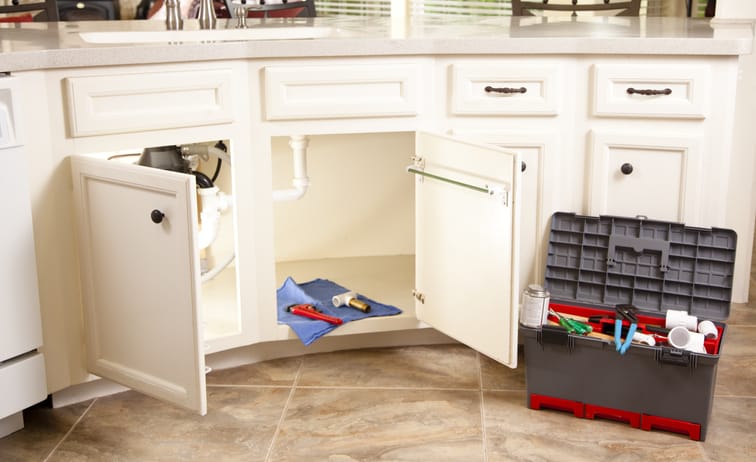The kitchen is the heart of the home, and proper plumbing is essential for maintaining a clean and functional kitchen environment. Kitchen plumbing includes everything from the sink, drain cleaning, and faucet to the garbage disposal and dishwasher. When any of these components are not functioning properly, it can cause significant problems, from clogged drains to leaks and even water damage.
Having a basic understanding of your kitchen plumbing system can help you identify and troubleshoot common problems. By practicing regular maintenance, you can work to keep your kitchen plumbing in good working order. Take the time to care for your plumbing system, you can ensure that it lasts for years to come and provides clean water and efficient waste removal for your home.
Components of a Kitchen Plumbing System
Kitchen plumbing consists of several components that work together to provide clean water and remove waste. Some of the key components of a kitchen plumbing system include:
- Sink: The sink is the primary fixture in any kitchen, used for washing dishes, preparing food, and cleaning up spills. Sinks are typically made from stainless steel or porcelain and come in a variety of styles and sizes to fit your needs.
- Faucet: The faucet is the fixture that controls the flow of water to the sink. Faucets come in a variety of styles and finishes and can be single or dual-handled.
- Garbage disposal: The garbage disposal is a motorized device that grinds up food waste and flushes it down the drain. Garbage disposals help to reduce the amount of food waste that goes into landfills and can also help prevent clogs in your plumbing system.
- Dishwasher: A dishwasher is a mechanical appliance that washes and dries dishes. Dishwashers are typically connected to the kitchen sink and rely on the same plumbing system for water supply and drainage.
Troubleshooting Common Kitchen Plumbing Problems
Kitchen plumbing problems can range from minor annoyances to major disasters. Learn about some common kitchen plumbing problems you may encounter and how to troubleshoot them:
- Clogged sink drain: A clogged sink drain is a common plumbing problem in kitchens. If your sink is draining slowly or not at all, try using a plunger or drain cleaner to clear the clog. If these methods don’t work, you may need to call a professional plumber and pursue professional drain cleaning
- Leaky faucet: A leaky faucet can waste a lot of water and increase your water bill. If your faucet is leaking, check the washer and O-ring for damage and replace them if necessary. If this doesn’t fix the problem, you may need to call a professional plumber.
- Garbage disposal won’t turn on: If your garbage disposal won’t turn on, check the reset button on the bottom of the disposal. If this doesn’t work, you may need to check the circuit breaker or call a professional plumber.
- Dishwasher not cleaning dishes properly: If your dishwasher isn’t cleaning dishes properly, check the spray arm and filters for clogs. You may also need to adjust the water temperature or detergent amount. If these solutions don’t work, you may need to call a professional appliance repair technician.
Tips for Maintaining Your Kitchen Plumbing System
Regular maintenance is essential for keeping your kitchen plumbing system in good working order. The following are some tips for maintaining your kitchen plumbing:
- Clean your sink and drain regularly: To prevent clogs and odours, clean your sink and drain regularly with a mixture of baking soda and vinegar.
- Check for leaks: Periodically check under your sink for leaks and repair any damage immediately.
- Run hot water down the drain: Running hot water down the drain can help prevent clogs and keep your pipes clean.
- Use a strainer: Use a strainer in your sink drain to catch food particles and prevent them from going down the drain and causing clogs.
- Don’t pour grease down the drain: Grease can solidify in your pipes and cause clogs. Instead, pour grease into a container and dispose of it in the trash.
Conclusion
In conclusion, kitchen plumbing is an essential component of any functional kitchen. From the sink to the dishwasher, proper plumbing is essential for maintaining a clean and healthy environment in your kitchen. By understanding the different components of your kitchen plumbing system, troubleshooting common problems, and practicing regular maintenance, you can ensure that your kitchen plumbing system works efficiently and effectively for years to come. If you encounter any significant problems with your kitchen plumbing system, it’s essential to call a professional plumber or appliance repair technician to address the issue promptly and prevent further damage. With these tips and tricks, you can keep your kitchen plumbing in top condition and enjoy a functional and comfortable kitchen space.

